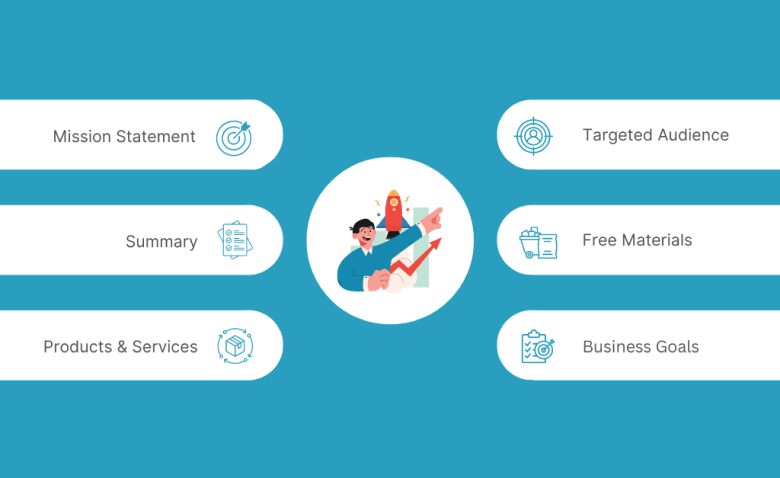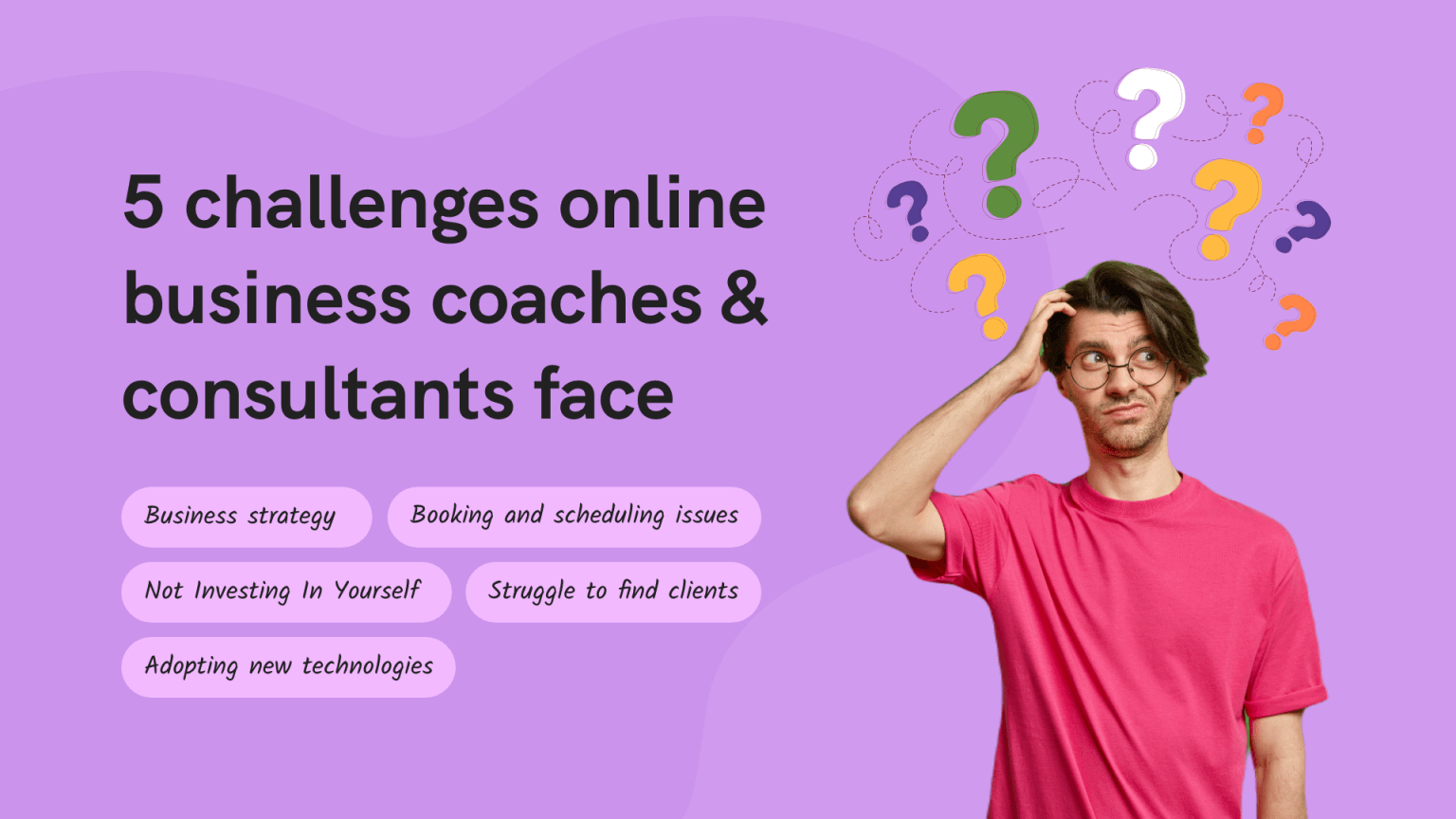Many coaches are transitioning to online business coaching, not just because of pandemics but because of technological advancement. This shift is a significant step in their coaching career, presenting both challenges and opportunities.
From creating the content to finding the time for marketing and building relationships with clients, there is always something that needs to be done. Online coaches and consultants must find a way to balance it all while keeping their sanity. Having the right coach can help you navigate these challenges effectively.
We know being a coach or consultant is not accessible. It comes with its own set of common challenges and can quickly become overwhelming. We put together this list of challenges online coaches and consultants face and how they overcome them to give you tips on creating an effective business model for yourself as an online business coach or consultant.
Build trust & FOMO
Highlight real-time activities like reviews, sales & sign-ups.
What are the key Common Coaching Challenges Business Coaches and Consultants face?
In this piece of content, we’ve selected some significant challenges faced by business coaches and consultants, including common coaching challenges:
- Struggling to Find Clients
- Building a Business Strategy
Booking and Scheduling
- Adapting to New Technology
- Not Investing in Yourself
Developing strong coaching skills, such as active listening, effective questioning, and feedback delivery, is crucial to overcoming these challenges.
So, read on and sort out some major ones.
1. Struggle to Find Clients
Clients work as oxygen for business coaches and consultants.
Aren’t they?
It can be overwhelming to more clients, especially when you have just started your coaching business. You want to work with the clients you’re best equipped to help or those who can benefit from your coaching.
You probably have asked yourself, “What can I do to attract the right clients online and grow my business?” People looking for your service will not knock at your door unless you attract them with your excellent online presence.
To attract and retain clients, it is essential to foster a strong coaching relationship by promoting open communication and accountability. Establishing trust and creating a safe space for dialogue can significantly enhance the coaching relationship and showcase the benefits of feedback for growth.
This means spending more time marketing yourself at an extraordinary level, but you also need to serve your clients. You need to take some time out of your busy schedule and consider addressing your advertising to achieve sustainable growth.
Another way is to create exciting content to achieve two primary goals: revenue and impact. For example, making small videos talking about solving your client’s problems and content reflects the interest of your ideal audience or person.
Also Read: Ways to Get Your First Client as a Coach
3. Booking and Scheduling Issues: Juggle Multiple Responsibilities
Another thing to consider before you move to an online coaching business is what strategy you will implement. You need to set a goal and milestones to achieve it. The plan seems simple, but is it? Managing coaching sessions can be challenging, especially when it comes to scheduling and keeping track of appointments.
What should be your first step?

Building a Business Strategy
- Mission Statement: You can start with a Mission Statement. Keep it specific, but ensure anyone reading it understands your business clearly. Effective coaching practices, such as empathetic listening and collaborative goal-setting, should be part of your strategy.
- Summary: Describe your business in detail. What type of business is it? What niche do you serve? How does it help your clients?
- Products & Services: List all your products & services, describe them with an offer, dig a little more, and provide your customers with material & pricing.
- Targeted Audience: It is crucial to define a buyer persona to attract your specific audience. Include demographics, trends, age, and more. Find them where they are and build a community of Facebook groups, Quora, and other platforms.
- Free Materials: Providing valuable materials is crucial to attracting customers. It makes customers reach out to you for more insights. These can be eBooks, short training videos, and more.
- Business Goals: List your goals for six months or a year. Measure KPIs to track whether you’re moving in the right direction.
Must Go with social proof while planning and building your coaching business strategy.
There are many ways that you probably don’t have the resources to tackle them all. Many tools are available to automate your tasks and save time by automating the process. These tools can automatically schedule appointment posts on social platforms and save time on content delivery.
Also See: 7 Most Successful Strategies to Boost Your Coaching Business Sales
4. Adopting New Technologies for Online Coaching
Imagine you’re going through your day and suddenly get a notification that the client just booked a coaching session… 10 minutes from now! That can be overwhelming, right?
Scheduling meetings with clients typically requires back-and-forth emails to confirm the day and time, notice period before booking a schedule, and other details. Until you find the right scheduling software, you must prepare for the chaotic and time-consuming process of arranging a meeting with a client via email.
Sometimes, booking a time slot is not as easy as it seems. There are lots of issues when considering any scheduling software that includes-
- Will software prevent clients from booking appointments 5 minutes or 1 hour from now?
- Will it avoid back-to-back bookings with no space in between?
- Will it make sure a double booking is not made at the same time?
- Will it notify my clients about the remainder of the appointments?
Indeed, scheduling bookings for your coaching business can be a hassle, but the proper tool can solve most of your issues before they can even arise with the appropriate tool. Adopting new technologies benefits both the coach and the coachee by streamlining the scheduling process and ensuring a smooth, efficient experience for everyone involved.
Refer to this blog for tools:
- 10 Ultimate Marketing Tools For Coaches, Consultants & Course Creators
- How To Automate Your Coaching Business (5 Areas + Tools)
5. Finding the Right Platform to Sale Coaching Practices
Another critical issue relevant to most business coaches is adapting to new technology. You should not fear adapting to new technology!
When working from home has become more prevalent, the technology allows business coaches and consultants to keep moving. The coaching industry is well suited to the recent changes in many ways.
Choosing the right platform is essential for professional development, as it helps in personal growth, skill enhancement, and career advancement. Business coaches and consultants must integrate new technology into the offer, products, and platforms to enhance clients’ experience and engagement. Integrating new technologies into the coaching process is essential for maintaining engagement and managing expectations. Adopting new technologies opens a new way to reach the global market. It’s also beneficial personally when utilizing cleanup tools, antiviruses, data backup, and other software to ensure smooth work on your devices.
Adopting new technologies makes you feel more confident if the setup looks good. For example, you use better lighting, software, external microphones, neutral screens, and advanced cameras. Ensuring high-quality video and sound helps you appear more professional in the client’s eyes.
Also See: 8 Steps To Start A Coaching Business in 2024
Build trust & FOMO
Highlight real-time activities like reviews, sales & sign-ups.
5. Finding the Right Platform to Sale
There are many platforms on the market for the online coaching business, but it’s critical to realize that most technologies are designed for specific pain points within specific coaching models.
Whether you are looking for a small coaching platform or complete coaching solutions, it helps launch scalable models and programming without compromising client engagement. Some are better suited for personal coaching, and others for group coaching. Some suit solopreneurs who just started, while others might be suited for established coaching businesses.
Coaches often juggle multiple responsibilities, making it essential to find a platform that can streamline various tasks and improve time management.
Deciding the right platform helps you to determine specific technology needs. It might consist of a combination of the following points:
- Administrative tools, including contracts, payments, scheduling, etc.
- Remote communication capabilities include SMS, telephonic & video tools, personal or group coaching capabilities, etc.
- Content delivery, including sharing of PDFs, images, videos, etc.
- Data collection from any connected devices.
Choose that platform that provides everything needed to kick off successfully and without worry.
Refer: 8 Amazing Platforms to Sell and Create Online Courses
To Conclude
The benefits of becoming an online business coach or consultant are incredible. You’ll be able to help those in need, build your reputation and brand, and even make money doing something you love.
Small business owners face many challenges that may be hard to overcome. This can make it hard for an online business coach or consultant to succeed in their line of work. To build your successful coaching practice, focus on the most challenging aspects and use this as a learning experience.
Becoming an online business coach is also a powerful journey towards personal and professional development. Understanding and strategizing ways to overcome these challenges is crucial for both coaches and clients.




